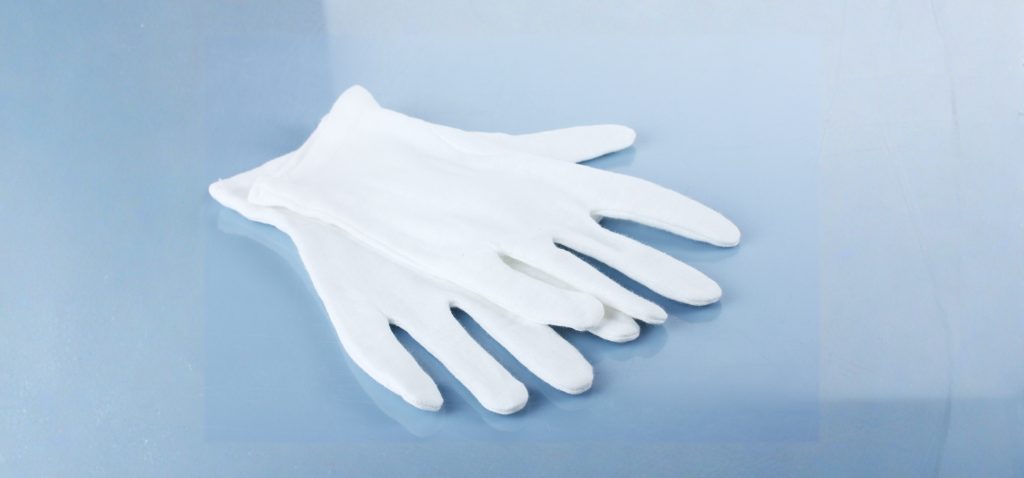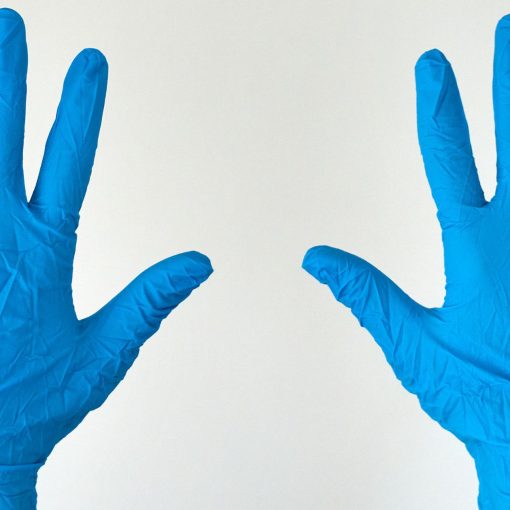When it comes to university lab equipment, some items are so essential they often go unnoticed. Cotton white gloves are one of those items. Simple, practical, and versatile, these gloves are vital across countless lab settings.
At Livingstone International, we know your lab relies on the right supplies to function efficiently. That includes everything from high-end microscopes to humble laboratory consumables like gloves. Our premium cotton white gloves offer reliable protection, cleanliness, and usability. Let us walk you through when and why you should make them a staple in your lab.

What Are Cotton White Gloves?
Cotton white gloves are soft, form-fitting gloves made from high-grade, breathable cotton. They are used in lab environments where cleanliness, protection from contamination, and delicate handling are required.
Unlike nitrile or latex gloves, cotton gloves are not used for chemical handling. Instead, they are your go-to choice when the goal is to prevent fingerprints, smudges, scratches, or fibre contamination on surfaces and materials.
We supply cotton white gloves designed specifically for laboratory tasks. They are comfortable, lint-free, and durable enough for repeated use, making them ideal for students and researchers alike.
When Should You Use Cotton White Gloves in Labs?
Cotton white gloves are not just for show. You will need them in any lab setting where surface cleanliness and sample integrity are priorities. Here are the most common scenarios where they shine:
- Handling optical lenses or microscopes
- Managing sterilised glassware or slides
- Preserving historical or fragile samples
- Assembling lab kits or equipment
- Working with metal instruments or electronics
- Avoiding residue on polished surfaces
Even the smallest fingerprint can ruin a sample, disrupt a reading, or contaminate a prepared slide. Cotton gloves help you eliminate that risk without compromising comfort or grip.
Why Cotton and Why White?
Let us break it down.
Cotton offers excellent breathability. It keeps your hands comfortable during long hours in the lab and prevents the sweat build-up that is common with synthetic gloves. It is soft on both skin and delicate equipment.
White allows you to detect contamination easily. If there is any dirt or dust on the glove, you will see it immediately and can switch to a clean pair. This simple visual cue adds an extra layer of quality control to your work.
Cotton gloves do not leave behind particles or cause static. That makes them ideal for delicate or precise work. Plus, they are washable, which means you can use them multiple times and reduce waste. They are both budget-conscious and environmentally friendly.
Core Applications in University Lab Settings
Cotton white gloves play a crucial role in a wide range of academic and research environments. Here are the areas where they are most commonly used:
Physics and Optics Labs
When working with lasers, lenses, and prisms, cleanliness is essential. Cotton gloves help prevent oil or dust transfer that can interfere with measurements or damage surfaces.
Biology and Biochemistry Labs
During sample preparation, equipment handling, or post-sterilisation setup, cotton gloves ensure you maintain a clean and controlled workspace.
Archival and Museum Work
Handling old documents, fossils, or artefacts requires a gentle touch. Cotton gloves offer the protection needed without compromising the material.
Forensic and Cleanroom Labs
Contamination can ruin results in these high-precision environments. Cotton gloves are ideal for evidence handling or cleanroom transitions.
Glassware Management
From freshly sterilised beakers to calibrated pipettes, clean handling matters. Cotton gloves help maintain hygiene and prevent re-contamination. When cleaning glassware, protective gloves should be worn—commercial cleaning agents are recommended (UOW Safety Guidelines).
In short, these gloves are the quiet assistants that support your focus, accuracy, and safety. When cleanliness and care are key, they are a lab essential.
Cotton Gloves vs Other Glove Types
Different gloves serve different purposes. If you are deciding what to stock in your lab, here is how cotton white gloves compare with others:
| Glove Type | Best For | Pros | Limitations |
| Cotton White Gloves | Clean, dry, non-hazardous handling | Breathable, reusable, gentle on surfaces | Not suitable for chemical exposure |
| Nitrile Gloves | Handling chemicals or wet materials | Chemical-resistant, puncture-resistant | Single-use, less breathable |
| Latex Gloves | Medical procedures or sterile settings | Tight fit, tactile sensitivity | Allergy risk, limited durability |
| Vinyl Gloves | Basic protection tasks | Inexpensive, easy to use | Loose fit, less durable |
Cotton gloves are not designed to replace protective gloves for chemical or biohazard tasks. Instead, they add a layer of precision and care where synthetic gloves fall short.
Best Practices for Using Cotton White Gloves in the Lab
To get the most out of your gloves, follow a few easy habits:
Wash Before First Use
Even high‑quality cotton gloves may carry minor factory dust. Washing them before first use improves cleanliness (Hand Hygiene Australia).
Store Them Separately
Do not store gloves with other tools. Keep them in a clean, closed drawer or container to avoid lint or debris.
Rotate Regularly
Have multiple pairs in rotation. Use fresh gloves for contamination-sensitive work and set older pairs aside for general handling.
Wash and Air-Dry Gently
Wash gloves by hand with mild soap and water. Let them dry naturally. Avoid strong chemicals or machine drying to extend their lifespan.
By maintaining your gloves properly, you reduce waste, save money, and keep your lab operations running smoothly.
Why Buy from Livingstone University Lab Supplies?
We understand what university labs need. That is why we offer cotton white gloves that meet both academic and professional standards. Our gloves are:
- Lint-free and seamless
- Available in bulk or small packs
- Reusable and cost-effective
- Lab-grade quality with consistent sizing
- Designed for comfort and control
At Livingstone, we supply more than just gloves. We support your entire lab setup with a wide range of university lab equipment and laboratory consumables. That includes pipettes, safety gear, glassware, and cleaning products.
All products listed on our University Store are selected to suit academic labs, student workspaces, and research departments across Australia. You can also explore our full range at Livingstone International.
Who Should Be Using Cotton White Gloves?
You do not need to be a senior researcher to benefit from cotton gloves. They are essential for:
- Undergraduate science students
- Postgraduate researchers
- Lab technicians
- Curators and archivists
- Cleanroom staff
- Physics and chemistry demonstrators
If you handle clean glassware, precision instruments, or historical samples, these gloves are for you. They are simple, effective, and versatile.
Stocking Cotton Gloves as Part of Your Lab Routine
Making cotton white gloves part of your regular supply list is a smart move. They are easy to store, inexpensive, and suitable for many lab tasks. You can purchase them in bulk or order specific sizes to match your department’s needs.
Need help deciding how many to order? Our support team can guide you through product selections and stock planning. We help university departments create well-organised, safe, and reliable lab environments.
Conclusion
Cotton white gloves may seem basic, but in the lab, they are far from it. They protect your work from contamination, protect your hands from irritation, and protect your equipment from damage. In any clean, precise, or delicate setting, they are the right tool for the job.
At Livingstone University Lab Supplies, we make sure your gloves are high-quality, lab-ready, and easy to order. Whether you are upgrading your stockroom or preparing a practical kit for your students, our cotton white gloves offer the performance and value you need.




